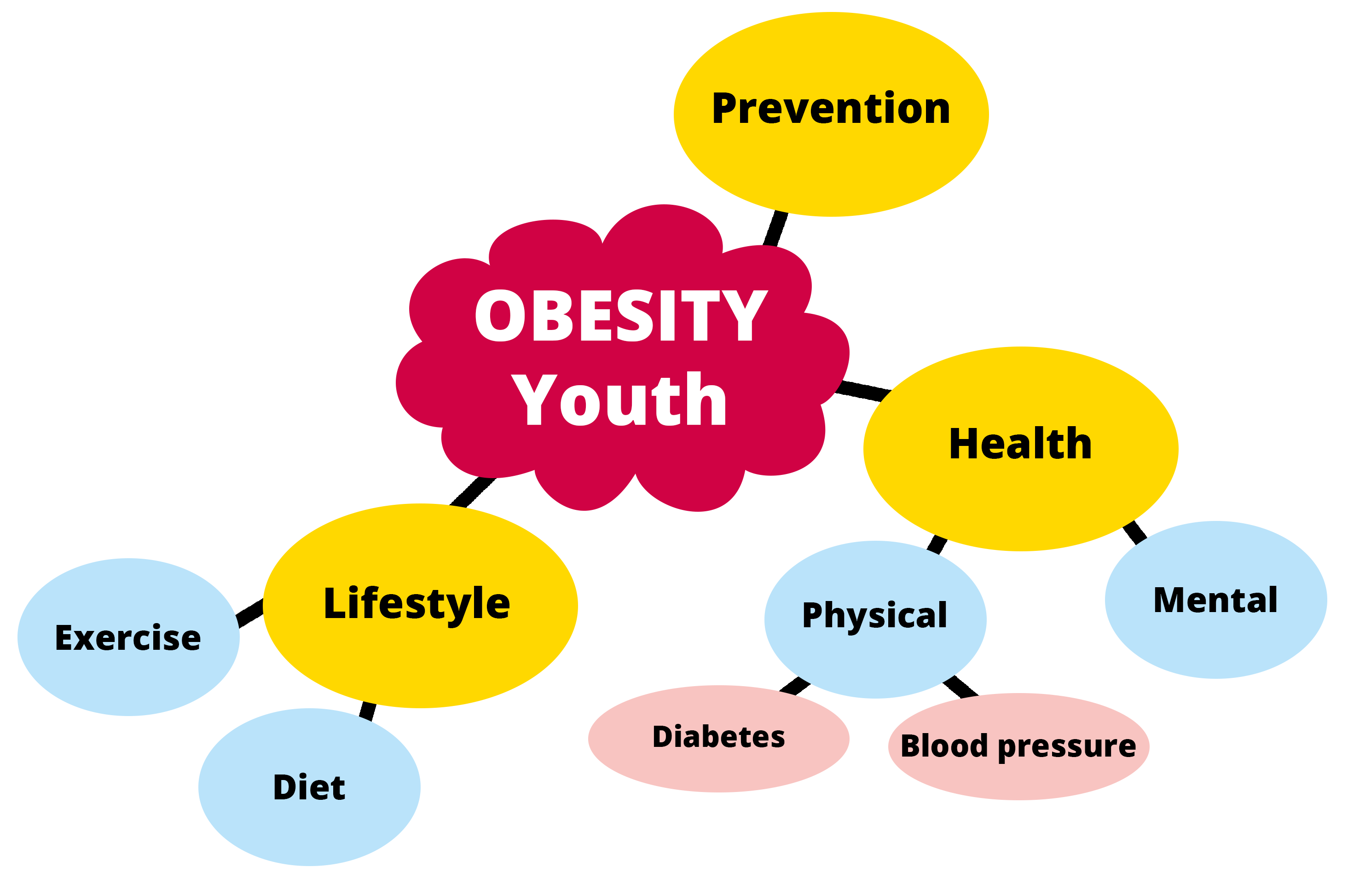What are you looking for?
Well begun, is half done. This is also true when you are looking for literature for your study assignment, research or thesis. We will explain the first step toward answering your search questions. Want to know more? A more extensive literature research training can be found under training. You can also earn an edubadge with this training.
Orientation
Make a mind map
If the framework and themes of your assignment are clear, explore the possibilities of your topic. You will find what you’re looking for by first orientating on your topic. A good starting point for your orientation can be making a mind map. You can fill one in easily and quickly on MindMeister. You can also gain new insights by simply talking to other students or lecturers about your topic.
Example
Suppose you are writing an assignment on obesity among youths. Words such as "losing weight", "overweight", "sport", "nutrition centre", "the Ministry of Health, Welfare and Sport" may come to mind. By writing these down, you gain perspective on your topic and subjects that you may encounter.

Narrow it down
Start searching the breadth of the topic for pertinent information. Which trends apply, what do experts have to say about the subject, and what has been written about in the (trade) literature? During this orientation search phase, you will get an increasingly clearer picture of your subject. This will help you define your subject and, in the end, formulate specific research questions.
The research question
Qualities of a research question
Do you have a good feel for the subject? Then formulate a general research question. Your research question will be your starting point. The question describes exactly what you want to know and provides direction for your search process. So it is important to formulate the question well.
- Your research question must be clear, with transparent concepts.
- Your research question must be specific in order to do a focussed search.
- Your research question must be relevant in order to contribute to your article, your goal.
- Your research question must have an open formulation; it is not a question with a ‘yes’ or ‘no’ answer.
- Your research question must be realistic; you must be able to find your answer within an acceptable amount of time, and with available means.
During the orientation search phase you will no doubt notice that there are countless search results on the internet. Define your subject in order to control the search. Specify by using, demographics, geography or a time period, for example.
Search terms
Finding relevant search terms
You are now ready to come up with search terms. Translate your research question into useful search terms you can use to search for information.
Do you have difficulty coming up with suitable search terms? Try using these tips:
- You can find good search terms by scanning relevant articles for general concepts.
- During the orientation phase you will often come across technical terminology. Note these terms in advance.
- Use dictionaries to translate search terms, into English for example.
- Consult a synonym website.
- Some subject-specific databases have a list of keywords, a so-called thesaurus. You can also use these to generate ideas for search terms.
- Use our search strategy form to keep an overview during your literature research
